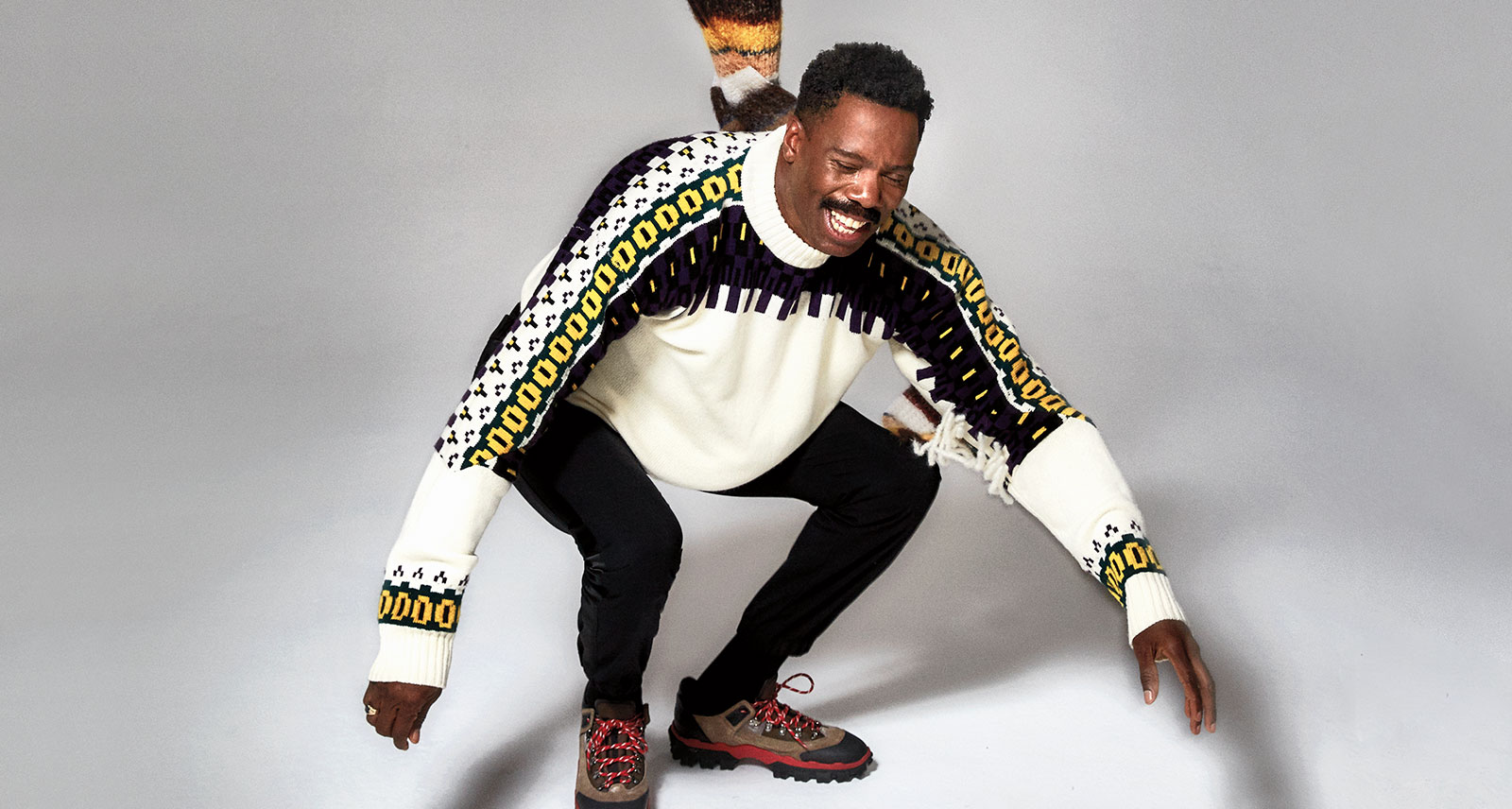Colman Domingo Can Do Whatever He Wants
IT’S HARD TO FORGET THE FIRST TIME I REGISTERED COLMAN DOMINGO onscreen, in 2018’s If Beale Street Could Talk. Playing Joseph Rivers, the warm yet firm father of the unexpectedly pregnant Tish Rivers (KiKi Layne), his onscreen presence was magnetic, pushing him higher up the ranks of iconic character actors. Taking a supporting role and anchoring a film has become Domingo’s superpower — but it didn’t come out of nowhere.
Speaking with Domingo over Zoom from Austin, Texas, where he’s shooting the next season of AMC’s Fear the Walking Dead, I tell him about how I had just watched him back-to-back in Candyman and Zola, so I was a little terrified of him (which he loved). The beauty of his work is that, at 51, he’s been slowly discovering his strengths as an actor onstage, on television, and on film — and now he knows exactly how to wield them. In other words,
he’s very aware that he’s cultivated a career where he can do whatever he wants.
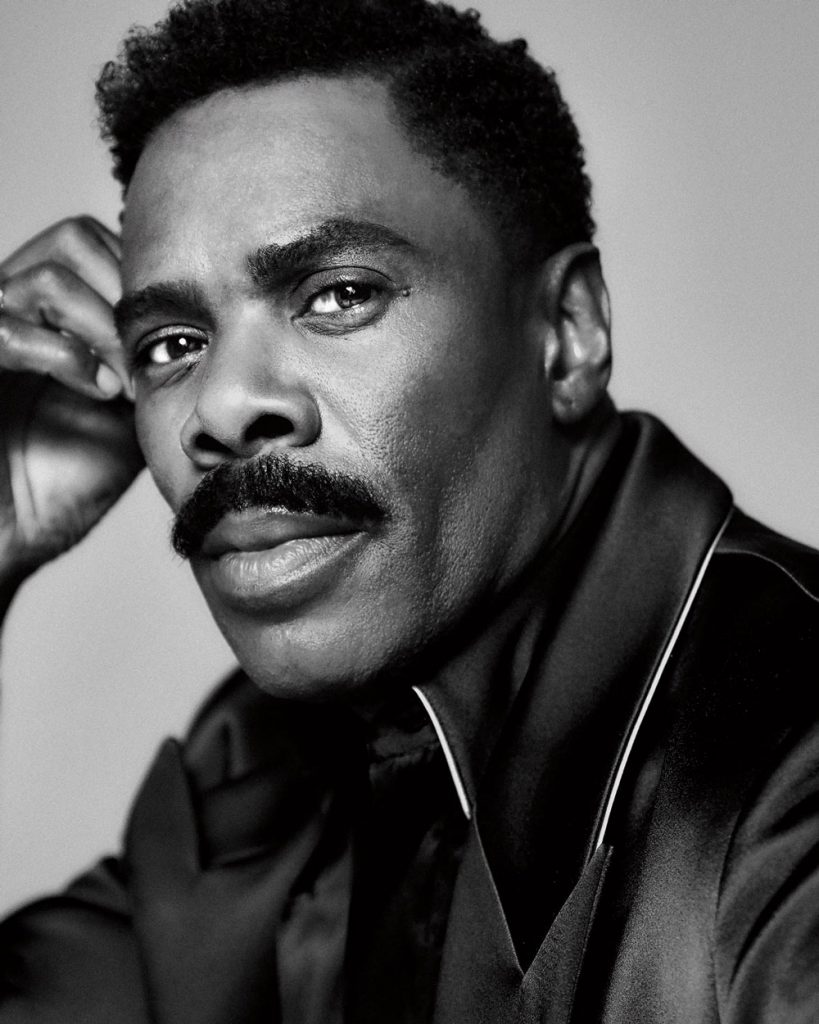
Born and raised in Philadelphia, Domingo moved to San Francisco shortly after graduating from Temple University to work as a theatre actor. “I’ve been doing this work now for 31 years professionally,” he tells me. “My work in the theatre was always about playing very different roles, so I really was that journeyman actor, shapeshifting at all times.” Having both the ability to lead and support in his work, the naturally curious Domingo leaned heavily into character acting, mostly because it was more fun. “You give me something that has a very clear objective and a clear motor, and I will just devour it and make a whole character out of just a couple of moments.” (See Candyman for proof.)
His dedication to character acting is on full display in Candyman. The original 1992 film has long been a cult hit, especially as a Black horror film — and Nia DaCosta’s Candyman, a worthy sequel of the original, has since opened at number-one, a first for a movie directed by a Black woman. “I didn’t see the original until after I decided to do this,” says Domingo. What drew him to the film was exploring Black trauma in the genre space. Playing the mysterious William Burke, another supporting role that alters the story completely, Domingo was drawn to the otherwise unremarkable man as an opportunity to make a role his own once again.
He laughs when I ask him, “Is that why you’re able to be so warm and then so terrifying at what feels like the drop of a hat?” acknowledging that that very skill is part and parcel of his sustained career. “I’m saying this without any ego attached,” he says. “There are not many people who can do what I do.” In Zola, Domingo plays the unpredictable X — a menacing force with an even more terrifying past. Within seconds, he goes from smiles to threats, anchoring the film with a sinister energy that it’s hard to imagine him possessing as I’m sitting across from him on Zoom.
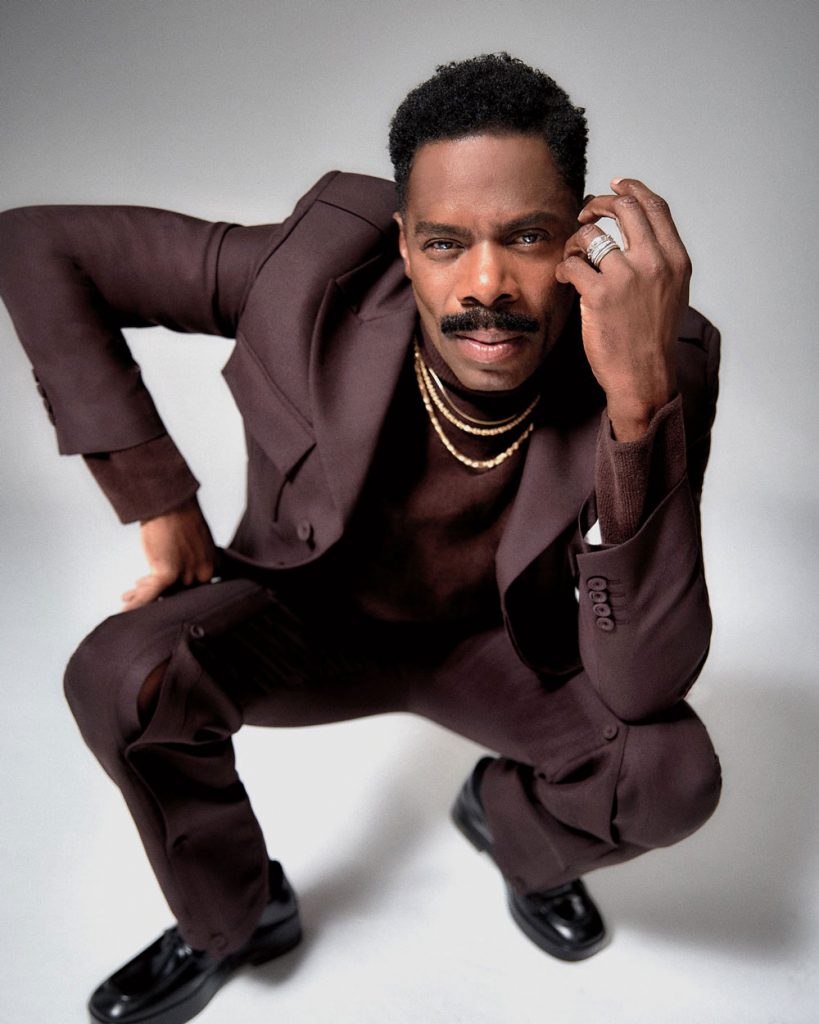
Domingo is probably one of very few Hollywood actors who can say that and mean it. And I can’t help but agree. When he takes on a project, he says he feels inspired by a story that needs to be told, and his first priority is to be of use to that story. “I don’t have to be in a film that’s all about me,” he says. “I love films, and I just want to be a part of them, and to be of service.”
This impulse is deeply rooted. After a decade in San Francisco, he moved to New York City for theatre, but he didn’t necessarily dream of Broadway. “I got so attached to the art and the idea of making things, be it acting or producing, it was all about making the work happen,” he says. In fact, his mom dreamed bigger than he did. “She would be like, ‘I hope you work with Spike Lee!’ And I would just be like, ‘Well, if he calls me, mom!’” Loving what he does means Domingo is almost always working. But for him, it’s all about the challenge and thinking about what’s next, not the accolades. “I am always looking for the next thing that is going to make me feel alive — it’s that spark that makes me feel like when I just started out,” he says.
I’m struck by Domingo’s self-assurance and optimism — it’s infectious, really. It’s hard seeing him clock a choice as a regret, even roles that weren’t necessarily hits. “It’s funny, because every artist that works with me knows I pride myself on being an actor who will make some terrible choices,” he says with a laugh. For Domingo, it’s all a part of the process. “I’m willing to look like a fool because I do trust that I will get there.”
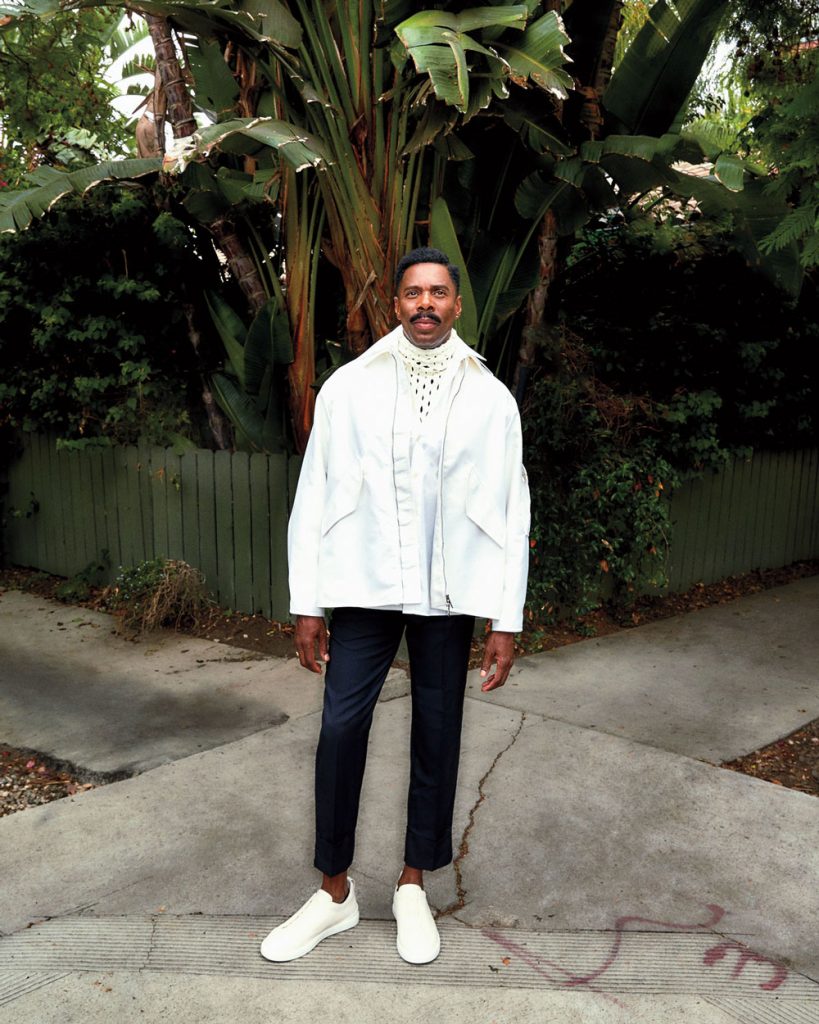
And when it comes to his process, Domingo isn’t ever afraid to say no, even if a role seems promising. Domingo tells me he initially turned down his role as civil rights leader Ralph Abernathy in Ava DuVernay’s Selma because he was working on a solo show in his hometown of Philadelphia. “Ava got on the phone with David Oyelowo and was like, ‘Can you tell your friend that he really needs to do this film?’” His solo show was important to him, and he saw the Selma opportunity as being someone else’s blessing. (Eventually, the solo show didn’t move forward, and he ended up taking the role.)
Over his decades-long career, despite having said no so many times, Domingo’s been used to hearing no himself — which he’s learned to appreciate. When he speaks about rejection, he says he’s never let the industry tell him what he’s worth. Trusting your instincts and believing in yourself isn’t an easy thing to do in Hollywood, especially for a Black man. “I don’t know where I get this sense of competence from. I think it’s because I understand my talents and my gifts,” he says. Of course, it’s also because he’s worked hard throughout his whole life. “I’m from inner-city Philadelphia,” he says, reflecting on his life and career. “Everything I’ve amassed — going to college, all that — I had to take care of that.”
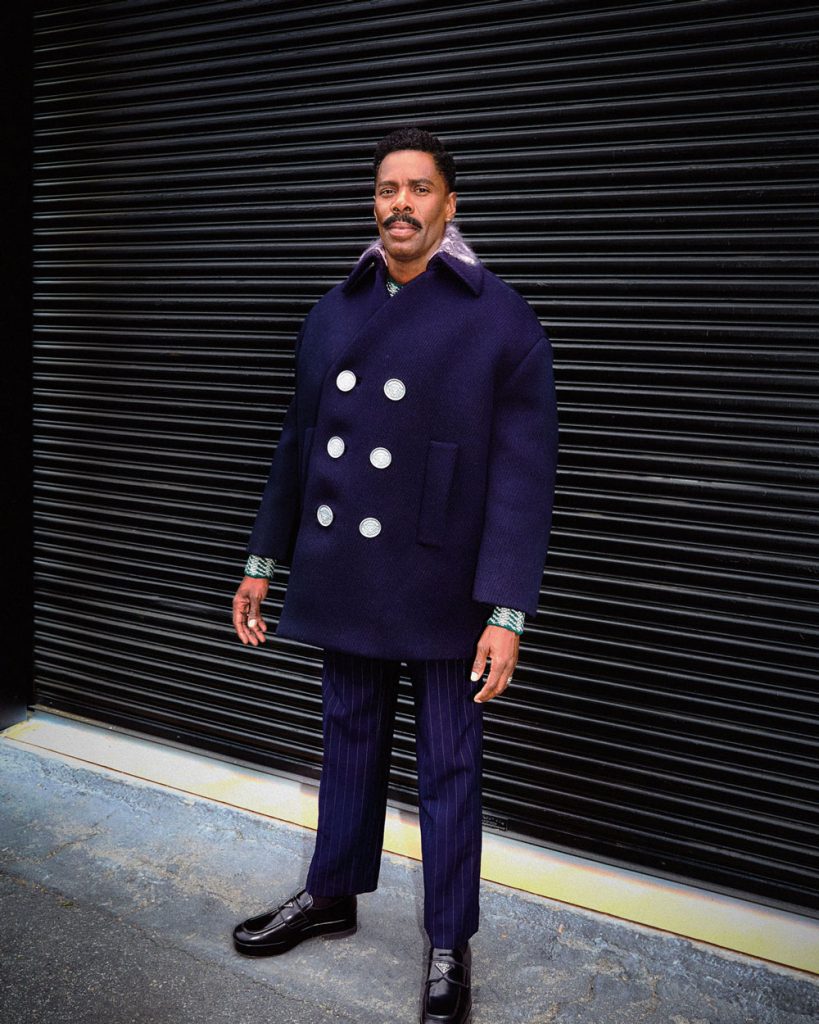
Back in 2013, Domingo went to the New York State Writers Institute to accept an award. Backstage, he listened to his introduction. “I was listening to this man read my resumé, and it really took the wind out of me,” he says. “I didn’t realize I’d been doing so much for so long. It was a moment to really think about what I had built all those years, and to really understand what I was doing. I was so proud.”
Over the past decade, Domingo’s success has become more tangible as his stature has grown. It’s something that usually changes people, often for the worse, but for Domingo, it just means he understands his new responsibilities as someone with more access. “To be honest, I know people are watching in some ways, so I want to be clear about everything, be it how I dress or how I speak,” he says. The larger platform is something he’s hyperaware of, but at the same time, he’s still not used to people actually recognizing him — something he credits to finding fame later in his career, rather than at its start. Today, when people approach Domingo, he still wonders if he’s met them somewhere before. “That’s until I’m like, ‘Oh they know me from something.’”
I ask him if he believes everything happened for him when it should have. Does he wish mainstream success had happened sooner? He takes a moment to think about this, and the answer is yes and no. “If I had had success or name recognition early in my career, I don’t know if it would have been healthy for me, to be honest.” He tells me he has spent a lot of time thinking about this and unpacking what exactly that means. “A lot of times, we do this work and critics, pundits, everyone says you’re set up for an award that season. And then you aren’t,” he says. “I have won awards and it’s great, but it has helped me realize that nobody owns me.”
Finding success later in his career also means that Domingo has never really become typecast, something that is rare for a Black actor with his experience. “We haven’t seen a lot of Black Willem Dafoes, or Daniel Day Lewises or Dustin Hoffmans — and those were my idols,” he says. “But I think a lot of times, when it comes to being in this skin, we aren’t always allowed these opportunities.” He says that many Black actors who are his contemporaries get limited or shoved into a box in order to survive the industry.
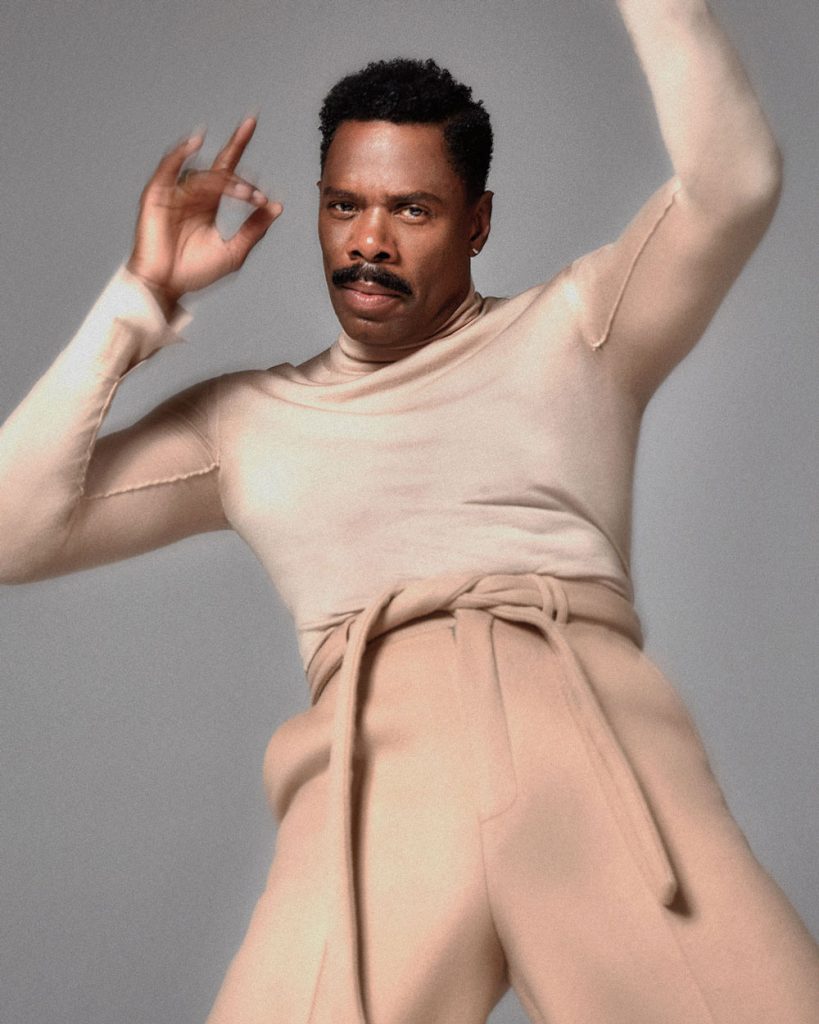
I ask Domingo if he’s trying to surprise his audience with the varied roles he takes, from the villainous X in Zola to the nurturing Ali in Euphoria. The real question, though, is if he plans on emotionally terrorizing me again. “Well now, Sarah, it’s at the top of my list!” he says with a laugh. “I have played a lot of wonderful supporting roles. I know what that engine requires, but there’s another engine that’s moving the whole train, and that’s the conductor.” Domingo is ready for those leading roles. He knows how to come into a movie or show for a couple of scenes and kill it, but as he explained to me earlier — he’s always looking for a new challenge.
No matter what Domingo does next, what’s most important for him is to have a sense of normalcy. “I’m not someone that has a lot of friends in the industry. I’m very much a Hollywood and Broadway actor, but my life is so normal,” he says. Thinking more about what he wants, he chooses his words carefully. “I want to go where the work is, I always want to feel like I’m just starting out. I never want to feel like the journey is over.”
Lead image: Sweater and pants by Sacai; shoes by Moncler; scarf by Sandro (all price upon request).
Photography: Max Montgomery
Styling: Soaree Cohen
Grooming: Jamie Richmond
Photo Assistant: Rosie Kane
Stylist Assistant: Lauren Willow White
